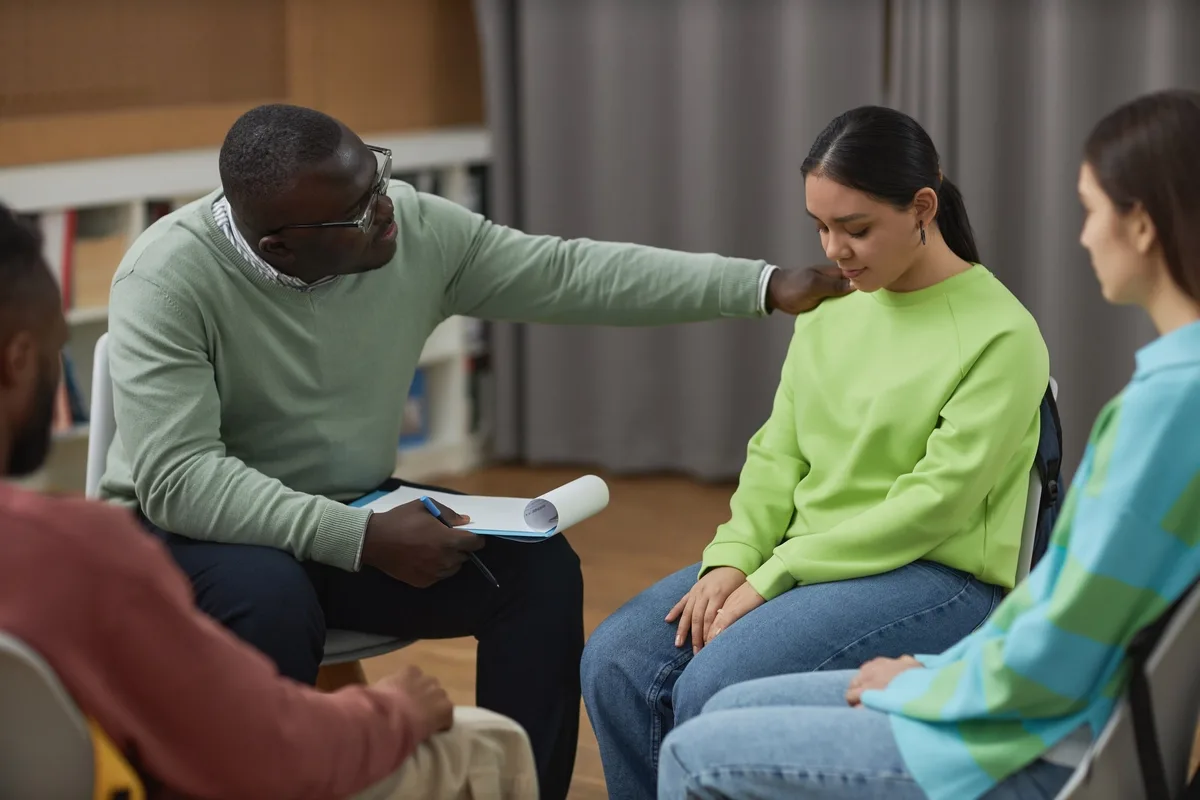24/7 Helpline:
(866) 899-221924/7 Helpline:
(866) 899-2219
Learn more about PTSD Treatment centers in Lake Lure
PTSD Treatment in Other Cities

Other Insurance Options

Health Net

ComPsych

American Behavioral

Absolute Total Care

Health Partners

BlueShield

Ceridian

EmblemHealth

Molina Healthcare

BlueCross

United Health Care

Aetna

Self-pay options

Medical Mutual of Ohio

Coventry Health Care

Group Health Incorporated

Kaiser Permanente

Sutter

UnitedHealth Group

Covered California












